About Lab Equipment Appraisals for Portfolio Evaluation
Whether you are consolidating assets for investors or documenting holdings for tax and estate reporting, a Lab Equipment appraisal for Portfolio Evaluation gives you a defensible, data-driven estimate of what your laboratory instruments are worth. Certified appraisers rely on three accepted methods, sales comparison, cost (replacement less depreciation), and income (discounted future earnings), and most USPAP-compliant reports triangulate between cost and market approaches to improve reliability. For a practical walkthrough of methods and examples, see our guide on determining lab equipment fair market value ([how to determine the fair market value for lab equipment](/blog/how-to-determine-the-fair-market-value-for-lab-equipment)). You can improve accuracy and report defensibility by uploading purchase invoices, serial numbers, maintenance logs, software and upgrade records, and clear photos; see what documentation matters most for lab instruments ([lab equipment documentation checklist](/types/lab-equipment)).
Expect scope and fees to vary with asset complexity: simple bench-top inventories frequently fall in the $500 to $1,500 range while high-value analyzers, pilot-scale systems, and specialized test platforms commonly require $3,000 to $8,000 or more for full USPAP and IRS-accepted reports. Market context affects resale liquidity and pricing, since the global medical device and laboratory equipment market is large and growing (market projections at [Precedence Research](https://www.precedenceresearch.com/medical-devices-market)). At the portfolio level, consolidated appraisals let you rank assets for sale, insurance, or reinvestment and provide lenders, accountants, and trustees the standardized documentation they require; learn how appraisal supports portfolio decisions ([appraisal portfolio evaluation benefits](/purposes/appraisal-portfolio-evaluation)) and read the complete guide ([complete guide to appraisal for portfolio evaluation](/blog/the-complete-guide-to-appraisal-for-portfolio-evaluation)). When you are ready, begin by collecting invoices and maintenance histories and then [request a lab equipment portfolio appraisal](/purpose-x-type/appraisal-portfolio-evaluation-lab-equipment).
Frequently Asked
Questions
No Frequently Asked Questions Found.
What is Portfolio Evaluation?
Portfolio evaluation is a comprehensive process of assessing the value and performance of a diverse collection of investments or assets. This systematic approach provides investors and organizations with critical insights into their financial holdings, encompassing a wide range of assets such as stocks, bonds, real estate, art, and other financial instruments.
The core purpose of portfolio evaluation extends beyond simple valuation. It serves as a sophisticated diagnostic tool that offers multiple strategic advantages. Investors gain a nuanced understanding of their financial landscape by examining asset values, tracking performance metrics, and evaluating potential risks.
Key dimensions of portfolio evaluation include comprehensive performance measurement, which allows investors to compare actual returns against market benchmarks and identify high-performing and underperforming assets. This analysis enables precise strategic adjustments, ensuring that investment strategies remain aligned with financial goals and market dynamics.
Risk assessment represents another critical component of portfolio evaluation. By meticulously analyzing the risk profile of individual assets and the overall portfolio, investors can implement targeted risk mitigation strategies. This approach helps balance potential returns with acceptable risk levels, creating a more resilient investment framework.
The evaluation process involves meticulous data collection, application of sophisticated valuation methodologies, and in-depth performance analysis. Professionals typically employ specialized techniques tailored to specific asset types, ensuring accuracy and comprehensiveness in their assessments.
For institutional investors and organizations, portfolio evaluation transcends strategic planning. It plays a crucial role in financial reporting, regulatory compliance, and maintaining transparency for stakeholders. The insights derived from thorough evaluations provide a clear, authoritative snapshot of financial health and potential.
Ultimately, portfolio evaluation empowers investors with the knowledge needed to make informed, strategic decisions. By providing a holistic view of asset performance, value, and potential risks, this practice is an indispensable tool for sophisticated financial management.
Why do I need an appraisal for Portfolio Evaluation?
Portfolio evaluation demands a strategic approach to understanding your investment landscape. An appraisal serves as a critical diagnostic tool that provides comprehensive insights into the true value and potential of your assets. By delivering an objective, professional assessment, appraisals transform complex financial data into clear, actionable intelligence.
Professional valuation goes beyond simple number-crunching. It involves a nuanced analysis of market dynamics, asset performance, and potential growth trajectories. Investors and businesses gain a multifaceted view of their holdings, uncovering hidden opportunities and potential risks that might otherwise remain obscured.
The value of a professional appraisal extends far beyond a single snapshot of worth. It enables more sophisticated financial planning, allowing stakeholders to make informed decisions about asset allocation, risk management, and strategic investment moves. Whether you're managing personal investments or overseeing a complex corporate portfolio, a detailed appraisal provides the clarity needed to navigate increasingly complex financial environments.
By synthesizing market trends, comparative analysis, and detailed asset examination, an appraisal offers a holistic perspective on investment performance. This approach helps investors identify underperforming assets, recognize emerging opportunities, and develop more resilient investment strategies.
Comprehensive portfolio evaluation ultimately empowers decision-makers with the knowledge to optimize their financial positioning, mitigate potential risks, and create more targeted investment approaches. The insights gained from a professional appraisal transform raw financial data into a strategic roadmap for future growth and financial success.
What is a Lab Equipment appraisal?
A lab equipment appraisal is a comprehensive professional assessment that determines the precise market value of scientific and research instrumentation. This specialized evaluation goes beyond simple price estimation, providing a nuanced understanding of an asset's worth through meticulous examination and expert analysis.
The process involves a systematic approach that considers multiple critical factors. Appraisers carefully evaluate each piece of equipment, examining its technological specifications, current market conditions, physical condition, and potential functional utility. They analyze the equipment's age, technological relevance, operational status, and overall performance capabilities to generate an accurate valuation.
Key considerations during the appraisal include detailed documentation of the equipment's make, model, serial number, and maintenance history. Appraisers conduct thorough market research to understand current demand, technological trends, and comparable sales in the scientific equipment marketplace. They assess the equipment's condition through rigorous inspection, determining its operational integrity and potential remaining useful life.
Multiple valuation methodologies may be employed, including cost approach, sales comparison, and income-based strategies. These techniques allow for a comprehensive assessment that considers replacement costs, current market values, and potential revenue generation capabilities.
Professional lab equipment appraisals serve critical functions across various sectors, including research institutions, pharmaceutical companies, educational facilities, and biotechnology organizations. They provide essential insights for financial reporting, strategic planning, insurance documentation, and potential transaction considerations.
The true value of a professional appraisal lies not just in generating a number, but in offering a comprehensive understanding of scientific assets that supports informed decision-making and strategic asset management.
Can I get a Lab Equipment appraisal done online?
Online lab equipment appraisals have emerged as a highly efficient and convenient method for assessing the value of specialized scientific instruments. Leveraging digital technologies, these remote appraisal processes enable comprehensive evaluations without requiring physical site visits.
Appraisers can now collect detailed information through multiple digital channels, including high-resolution photographs, comprehensive documentation, and interactive video consultations. This approach is particularly advantageous for stationary or complex equipment that may be challenging to relocate or physically inspect.
Advanced digital methods allow professionals to thoroughly examine equipment specifications, condition, age, and market value with remarkable precision. Live video conferencing platforms enable real-time interactions, where appraisers can conduct detailed visual assessments and ask targeted questions about the equipment's history and functionality.
The digital appraisal process offers significant benefits for laboratories, research institutions, and businesses with equipment distributed across multiple locations. By minimizing logistical constraints, these online approaches provide flexibility, reduce assessment time, and maintain the highest standards of professional evaluation.
Qualified appraisers utilize sophisticated techniques to ensure accurate valuations that reflect current market conditions, technological relevance, and specific equipment characteristics. Their expertise guarantees a comprehensive and reliable assessment that meets professional industry standards.
What are the different types of Lab Equipment appraisals?
Lab equipment appraisers represent a specialized subset of valuation professionals who possess deep technical knowledge and expertise in assessing scientific instrumentation across multiple disciplines. These professionals are distinguished by their focused areas of specialization, each offering unique insights into the complex world of laboratory equipment valuation.
General lab equipment appraisers maintain broad competencies, capable of evaluating diverse instruments ranging from basic microscopes to sophisticated analytical equipment. Their comprehensive understanding allows them to provide holistic assessments that consider technological complexity, market demand, and current operational condition.
Specialized appraisers delve into specific scientific domains, developing nuanced expertise in particular equipment categories. Medical diagnostics, biotechnology, pharmaceutical research, and industrial quality control represent key areas where these professionals demonstrate exceptional technical acumen. Their targeted knowledge enables precise valuations that account for intricate technological specifications and industry-specific performance standards.
Industrial and regulatory-focused appraisers bring additional layers of complexity to equipment assessment. They integrate deep understanding of compliance requirements, safety standards, and operational protocols into their valuation methodologies. For organizations operating in highly regulated environments, these professionals provide critical insights that extend beyond monetary value.
Forensic equipment appraisers occupy a unique niche, understanding the specialized requirements of investigative laboratories. Their assessments consider not just monetary value, but also critical factors like evidentiary integrity, precision instrumentation, and specialized technological capabilities.
Each appraiser type contributes distinctive perspectives, ensuring comprehensive and accurate equipment valuations that support strategic decision-making across scientific and industrial sectors.
Why should I get a Lab Equipment appraisal?
In the dynamic landscape of scientific research and technological innovation, lab equipment represents a critical and often substantial investment. A comprehensive appraisal provides essential insights that extend far beyond simple monetary valuation, offering strategic advantages across multiple dimensions of business and research operations.
Financial clarity stands as a primary benefit of professional equipment assessment. Precise valuations enable accurate financial reporting, support tax compliance, and provide critical documentation for insurance purposes. Organizations can optimize their asset management strategies by understanding the true market value and depreciation trajectory of their scientific instrumentation.
Equipment appraisals become particularly crucial during significant business transitions such as mergers, acquisitions, or strategic equipment sales. They offer an objective, professionally validated perspective on asset worth, facilitating transparent negotiations and informed decision-making. For research institutions and corporate laboratories, this means maintaining financial integrity while supporting strategic planning.
Insurance and risk management represent another vital consideration. Accurate equipment valuations ensure appropriate coverage levels, protecting organizations from potential underinsurance or unnecessary premium expenditures. In scenarios of loss or damage, a credible appraisal expedites claims processes and supports fair compensation.
Legal scenarios also benefit significantly from professional equipment assessments. Whether addressing estate planning, partnership dissolutions, or asset divisions, a meticulously documented appraisal provides an impartial benchmark for determining equipment value.
Beyond immediate financial implications, equipment appraisals offer strategic insights into technological infrastructure. They help organizations understand depreciation patterns, plan capital expenditures, and make informed decisions about equipment upgrades or replacements.
Ultimately, a comprehensive lab equipment appraisal transcends simple monetary evaluation. It represents a strategic tool that empowers organizations to make data-driven decisions, maintain financial transparency, and optimize their technological investments.
How much does a Lab Equipment appraisal cost?
What Makes Lab Equipment Valuation Critical for Your Portfolio?
Understanding the Critical Role of Lab Equipment Valuation
Lab equipment valuation is a strategic process essential for businesses and institutions in research, healthcare, and technology sectors. By thoroughly assessing the value of laboratory assets, organizations can make informed decisions that impact their overall financial and operational performance.
Key Dimensions of Lab Equipment Valuation
- Financial Accuracy and Reporting
Precise equipment valuation ensures financial statements accurately reflect asset worth, providing critical insights for:
- Investor confidence
- Financial institution assessments
- Potential merger or acquisition evaluations
- Insurance and Risk Management
Comprehensive equipment appraisal enables organizations to:
- Secure appropriate insurance coverage
- Mitigate financial risks from potential equipment loss
- Protect against unexpected operational disruptions
- Regulatory Compliance
Accurate valuation supports organizations in:
- Meeting industry-specific reporting standards
- Reducing legal and financial compliance risks
- Maintaining transparent asset documentation
- Strategic Market Positioning
Equipment valuation provides strategic advantages through:
- Insights into current technology market trends
- Informed decisions about equipment upgrades
- Optimizing technology investment strategies
Long-Term Benefits of Comprehensive Lab Equipment Valuation
Beyond immediate financial considerations, lab equipment valuation serves as a strategic tool for holistic portfolio management. By understanding the true value of laboratory assets, organizations can:
- Enhance financial planning accuracy
- Improve operational efficiency
- Maintain competitive market positioning
- Mitigate potential financial and operational risks
Ultimately, investing in thorough and professional lab equipment valuation is not merely an accounting exercise—it's a critical strategy for sustainable organizational growth and strategic decision-making.
The Strategic Importance of Comprehensive Lab Equipment Assessment
In the dynamic world of scientific research and innovation, a comprehensive lab equipment assessment is a strategic imperative for organizations seeking to optimize their research capabilities and financial management.
Key Benefits of Comprehensive Lab Equipment Evaluation
- Asset Precision: Accurately assess current equipment values to make informed decisions about upgrades, repairs, and replacements
- Resource Optimization: Enable precise resource allocation and reduce unnecessary expenditures
- Risk Management Strategy: Provide critical insights for insurance coverage and financial protection
Strategic Financial Implications
Financial Reporting and Portfolio Assessment
Comprehensive equipment appraisals are fundamental to:
- Generating accurate financial reports
- Supporting potential funding opportunities
- Facilitating external financial reviews
Transaction and Negotiation Support
Precise equipment valuations offer significant advantages during:
- Equipment disposal processes
- Acquisition negotiations
- Partnership evaluations
Long-Term Organizational Benefits
By implementing rigorous equipment assessment practices, laboratories can:
- Enhance financial transparency
- Minimize operational risks
- Support sustainable innovation strategies
Understanding the true value of laboratory assets empowers organizations to make strategic decisions that align with their research objectives and financial goals.
Navigating the Spectrum of Laboratory Instrumentation Valuation
In the dynamic landscape of scientific research and technological advancement, understanding the value of laboratory instruments is crucial for effective portfolio evaluation. Lab equipment appraisal is a specialized process that requires expertise in both scientific domains and equipment valuation intricacies.
The Complexity of Laboratory Equipment Valuation
Laboratory equipment encompasses a diverse range of sophisticated instruments, including:
- Analytical instruments
- High-precision microscopes
- Advanced centrifuges
- Specialized experimental machinery
Critical Factors in Equipment Valuation
1. Equipment Condition Assessment
The operational state of laboratory instruments fundamentally impacts their market value. Key condition considerations include:
- Physical integrity
- Maintenance history
- Calibration records
- Functional performance
2. Market Dynamics Evaluation
Valuation requires comprehensive understanding of current market trends, including:
- Technological advancement rates
- Industry-specific demand fluctuations
- Regulatory environment changes
- Emerging research requirements
3. Comprehensive Valuation Methodology
A robust appraisal process integrates multiple strategic approaches:
- Replacement cost analysis
- Comparative market assessment
- Depreciation calculation
- Historical sales data review
Strategic Implications of Accurate Valuation
Precise laboratory equipment valuation provides critical insights for stakeholders, enabling:
- Informed financial decision-making
- Effective asset management
- Risk mitigation strategies
- Investment optimization
By comprehensively understanding laboratory instrumentation valuation, research institutions and organizations can strategically manage their scientific assets, ensuring financial prudence and technological competitiveness.
Key Determinants of Lab Equipment Market Value
Key Factors Influencing Lab Equipment Market Value
Understanding the critical determinants of lab equipment market value is essential for accurate portfolio evaluation. Multiple interconnected factors influence how lab equipment is appraised, impacting both its fair market value and potential resale opportunities.
Primary Valuation Determinants
- Equipment Condition
- Physical state and overall maintenance
- Functionality and operational integrity
- Compliance with current safety standards
- Regular calibration and service history
- Technological Relevance and Age
- Technological capabilities compared to current market standards
- Presence of advanced features enhancing efficiency
- Compatibility with contemporary research requirements
- Brand and Manufacturer Reputation
- Manufacturer's standing in scientific and research communities
- Historical performance and reliability
- Track record of product quality and customer support
- Market Supply and Demand Dynamics
- Current industry research trends
- Specific sector demand (e.g., biomedical, pharmaceutical)
- Global and regional market fluctuations
- Special Features and Certifications
- Advanced technological integrations
- User interface and operational complexity
- Regulatory certifications (ISO, CE marking)
- Specialized functional capabilities
A comprehensive and nuanced assessment of these factors provides a robust framework for understanding lab equipment valuation, enabling more strategic portfolio management and investment decisions.
Precision in Appraisal: Methodologies That Matter
When it comes to lab equipment appraisal for portfolio evaluation, precision is critical. Various methodologies can be employed to achieve accurate and reliable appraisals, ensuring that stakeholders have a clear understanding of their assets' true value.
Market Approach
One of the most commonly utilized methodologies is the market approach, which assesses comparable sales data. This involves analyzing similar lab equipment that has been sold in the market recently, allowing appraisers to establish a fair market value. Key considerations include:
- Equipment condition
- Age of the equipment
- Specific technical features
- Current market demand
Cost Approach
The cost approach focuses on the cost to replace the equipment with a new or equivalent unit. Appraisers carefully evaluate:
- Original purchase price
- Depreciation based on age and wear
- Replacement cost of similar equipment
- Technological obsolescence
This method proves especially valuable for unique or specialized equipment where direct market comparisons might be scarce.
Income Approach
While less common in lab equipment appraisal, the income approach can provide valuable insights in specific contexts, particularly for revenue-generating equipment. This methodology involves:
- Examining potential income generation
- Calculating future cash flows
- Discounting projected revenues to present value
- Assessing the equipment's economic contribution
Condition Assessment
Regardless of the chosen methodology, a comprehensive condition assessment is crucial. Appraisers must meticulously evaluate:
- Overall equipment functionality
- Detailed maintenance history
- Any modifications or upgrades
- Current operational status
Expert Insights
The most effective appraisals leverage the expertise of professionals who specialize in laboratory equipment valuation. These experts bring:
- Deep industry-specific knowledge
- Technical understanding of equipment specifications
- Comprehensive market insights
- Nuanced evaluation techniques
By understanding and applying these sophisticated methodologies, stakeholders can obtain precise and reliable valuations of their lab equipment portfolios, enabling more informed strategic decision-making.
Why Certified Expertise Transforms Equipment Evaluation
The Transformative Power of Certified Expertise in Equipment Evaluation
In the complex landscape of lab equipment appraisal, certified expertise is the cornerstone of accurate portfolio valuation. Beyond simple price estimation, certified appraisers deliver comprehensive insights that capture the true value of scientific assets.
Key Benefits of Certified Expertise
- Comprehensive Evaluation: Certified appraisers consider multiple critical factors:
- Equipment age and condition
- Current market demand
- Technological relevance
- Functional capabilities
- Rigorous Professional Standards: Adherence to industry guidelines ensures:
- Legal compliance
- Regulatory alignment
- Enhanced credibility
- Advanced Valuation Methodologies: Utilize:
- Comprehensive market data analysis
- Specialized sector insights
- Sophisticated valuation tools
Strategic Importance of Precise Valuation
Accurate equipment appraisal goes beyond financial reporting. It provides strategic intelligence that enables organizations to:
- Make informed investment decisions
- Optimize asset management
- Align technological resources with organizational goals
By leveraging certified expertise, organizations transform equipment evaluation from a routine assessment into a strategic opportunity for understanding their technological assets' true potential and value.
Strategic Preparation: Optimizing Your Lab Equipment Appraisal Process
Strategic Preparation for Accurate Lab Equipment Appraisal
Strategic preparation is crucial in maximizing the value and accuracy of your lab equipment appraisal. A well-executed evaluation provides critical insights for portfolio management, financial planning, and informed decision-making.
Key Preparation Steps
- Comprehensive Equipment Documentation
- Compile detailed information for each piece of equipment
- Include make, model, serial number, age, and current condition
- Gather maintenance records, modifications, and upgrade history
- Define Clear Appraisal Objectives
- Clarify the primary purpose of the appraisal
- Potential objectives may include:
- Portfolio value assessment
- Acquisition or divestiture planning
- Insurance compliance
- Financial reporting
- Align objectives with appropriate appraisal methodology
- Select Qualified Appraisal Professionals
- Seek appraisers with specialized lab equipment expertise
- Verify professional credentials
- Look for industry-recognized certifications
- Prioritize professionals with current market knowledge
- Market Trend Analysis
- Research current technological advancements
- Monitor regulatory changes
- Understand supply and demand dynamics
- Assess potential impact on equipment valuation
- Facility and Equipment Preparation
- Ensure equipment is clean and accessible
- Verify operational functionality
- Organize maintenance documentation
- Create a professional inspection environment
By implementing these strategic preparation steps, you can enhance the accuracy and effectiveness of your lab equipment appraisal, providing valuable insights for future decision-making and portfolio management.
Overcoming Complexity in Scientific Equipment Valuation
Navigating the Complexity of Scientific Equipment Valuation
Valuing scientific and laboratory equipment is a nuanced process that requires a strategic and comprehensive approach. By understanding key considerations and leveraging professional expertise, stakeholders can effectively assess the true value of their laboratory assets.
Key Categories of Laboratory Equipment
Laboratory equipment can be broadly classified into several critical categories:
- Analytical Instruments: Precision tools used for scientific measurements and research
- Diagnostic Machines: Equipment designed for medical and research diagnostics
- General Laboratory Tools: Essential equipment supporting daily research and experimental processes
Critical Valuation Factors
- Equipment Age and Condition
- Assess technological relevance and operational capabilities
- Evaluate maintenance history and calibration status
- Consider potential upgrades and technological enhancements
- Market Research and Comparative Analysis
- Analyze recent sales and leasing trends
- Review competitive pricing in the scientific equipment market
- Understand current demand and technological preferences
Comprehensive Valuation Considerations
Effective lab equipment valuation extends beyond simple monetary assessment, incorporating multiple dimensions:
- Tangible Attributes: Physical condition, operational efficiency
- Intangible Elements: Brand reputation, historical significance
- Technological Compatibility: Integration potential with modern research environments
Strategic Approach to Equipment Valuation
Successful portfolio evaluation requires a multifaceted strategy that combines technical expertise, market knowledge, and comprehensive analysis. By engaging professionals with specialized knowledge in scientific equipment valuation, stakeholders can ensure accurate, nuanced assessments that support informed decision-making.
The ultimate goal is to transform complex valuation processes into clear, actionable insights that drive strategic planning and resource optimization.
Regulatory Landscape: Compliance and Valuation Insights
Understanding the Regulatory Framework for Lab Equipment Valuation
Navigating the complex regulatory landscape is critical for accurate and comprehensive lab equipment appraisals. Multiple factors influence equipment valuation, with regulatory compliance playing a pivotal role in determining market value and operational integrity.
Key Regulatory Considerations
- Industry Standards: Organizations like ANSI and ISO establish critical benchmarks for laboratory equipment quality and safety
- Certification Requirements: Adherence to regulatory guidelines directly impacts equipment valuation and marketability
- Compliance Documentation: Comprehensive maintenance and certification records are essential for transparent valuations
Critical Regulatory Domains
- Safety Compliance
- Verification of equipment safety standards
- Assessment of maintenance protocols
- Evaluation of certification status
- Industry-Specific Regulations
- FDA guidelines for medical and pharmaceutical equipment
- Specialized standards for clinical diagnostic instruments
- Performance and efficacy certification requirements
Financial and Strategic Implications
Comprehensive regulatory compliance significantly influences:
- Asset valuation accuracy
- Investor confidence
- Potential funding opportunities
- Portfolio performance assessments
By meticulously understanding and documenting regulatory compliance, organizations can ensure more precise and defensible equipment valuations that reflect true market value and operational potential.
Success in Action: Transformative Lab Equipment Appraisal Strategies
In today's rapidly evolving scientific landscape, the effective appraisal of lab equipment is a critical component of portfolio evaluation and management. Organizations frequently encounter challenges in determining the precise market value of their scientific assets, which can profoundly impact financial planning and investment strategies.
Key Transformative Appraisal Strategies
- Comprehensive Asset Management Systems
- Track equipment acquisition, depreciation, and current value
- Provide real-time transparency for stakeholders
- Enable data-driven decision-making
- Strategic Valuation Approaches
- Conduct regularly scheduled appraisals
- Identify market value trends
- Anticipate potential equipment depreciation
- Expert Professional Engagement
- Utilize qualified appraisers with specialized industry expertise
- Apply standardized methodological evaluation techniques
- Develop precise, context-specific equipment valuations
Advanced Technological Integration
Emerging technologies like artificial intelligence and machine learning are revolutionizing equipment appraisal by:
- Analyzing extensive historical and market datasets
- Predicting future equipment value trajectories
- Providing more nuanced and accurate valuation insights
Strategic Benefits of Proactive Appraisal
Organizations that implement sophisticated appraisal strategies can achieve significant advantages, including:
- Enhanced operational efficiency
- Improved financial planning accuracy
- Stronger regulatory compliance
- Competitive positioning in dynamic scientific markets
By adopting a comprehensive, technology-driven approach to lab equipment appraisal, businesses can transform their asset management processes, optimize portfolio performance, and create a robust foundation for future growth and innovation.
Ensuring Accuracy: Best Practices in Portfolio Management
Ensuring Accuracy: Best Practices in Portfolio Management
Effective portfolio management is essential for maximizing the value of laboratory equipment and ensuring efficient use of resources. Adopting best practices in lab equipment appraisal can lead to more informed decision-making and accurate asset valuation.
Key Strategies for Comprehensive Portfolio Management
- Conduct Regular Appraisals
Performing periodic assessments of lab equipment helps track current market value. Key considerations include:
- Monitor technological advancements
- Identify potential value changes
- Support strategic investment decisions
- Manage potential financial risks
- Evaluate Equipment Condition Systematically
Equipment condition directly impacts asset valuation. Critical aspects include:
- Implement routine maintenance inspections
- Create comprehensive maintenance logs
- Track equipment performance metrics
- Prevent premature depreciation
- Utilize Specialized Appraisal Expertise
Professional appraisers provide critical insights through:
- In-depth market knowledge
- Specialized equipment valuation techniques
- Unbiased assessment methodologies
- Comprehensive market trend analysis
- Monitor Market Dynamics
Staying informed about market trends enables:
- Proactive portfolio management
- Strategic investment planning
- Anticipating technological shifts
- Optimizing asset allocation
- Maintain Comprehensive Documentation
Rigorous record-keeping supports:
- Accurate financial reporting
- Transparent asset tracking
- Simplified audit processes
- Enhanced portfolio credibility
By implementing these strategic practices, laboratory managers can develop a robust approach to equipment portfolio management, driving operational efficiency and financial optimization.
Unlocking Portfolio Potential Through Intelligent Equipment Assessment
Strategic Portfolio Management Through Intelligent Lab Equipment Assessment
Investing in lab equipment represents a critical component of managing scientific and research portfolios. As organizations continue to evolve, intelligent equipment assessment becomes essential for unlocking the full potential of institutional assets.
Key Benefits of Comprehensive Equipment Appraisal
- Resource Allocation Optimization
Accurate market value assessments enable organizations to make strategic decisions about:
- Asset sales
- Equipment upgrades
- Strategic acquisitions
- Technology Lifecycle Management
Expert appraisals provide critical insights into:
- Equipment viability
- Potential obsolescence risks
- Replacement timing strategies
- Risk Management and Financial Transparency
Comprehensive assessments support:
- Accurate insurance coverage
- Precise financial reporting
- Enhanced stakeholder confidence
- Sustainable Equipment Practices
Intelligent evaluations facilitate:
- Environmentally responsible disposal
- Maximized equipment resale value
- Efficient asset lifecycle management
Long-Term Strategic Advantages
Implementing thoughtful appraisal processes empowers organizations to manage lab equipment more strategically, driving operational excellence and enhancing overall portfolio value. By understanding the nuanced dynamics of equipment valuation, research institutions can make informed decisions that balance technological innovation, financial prudence, and operational efficiency.








.avif)




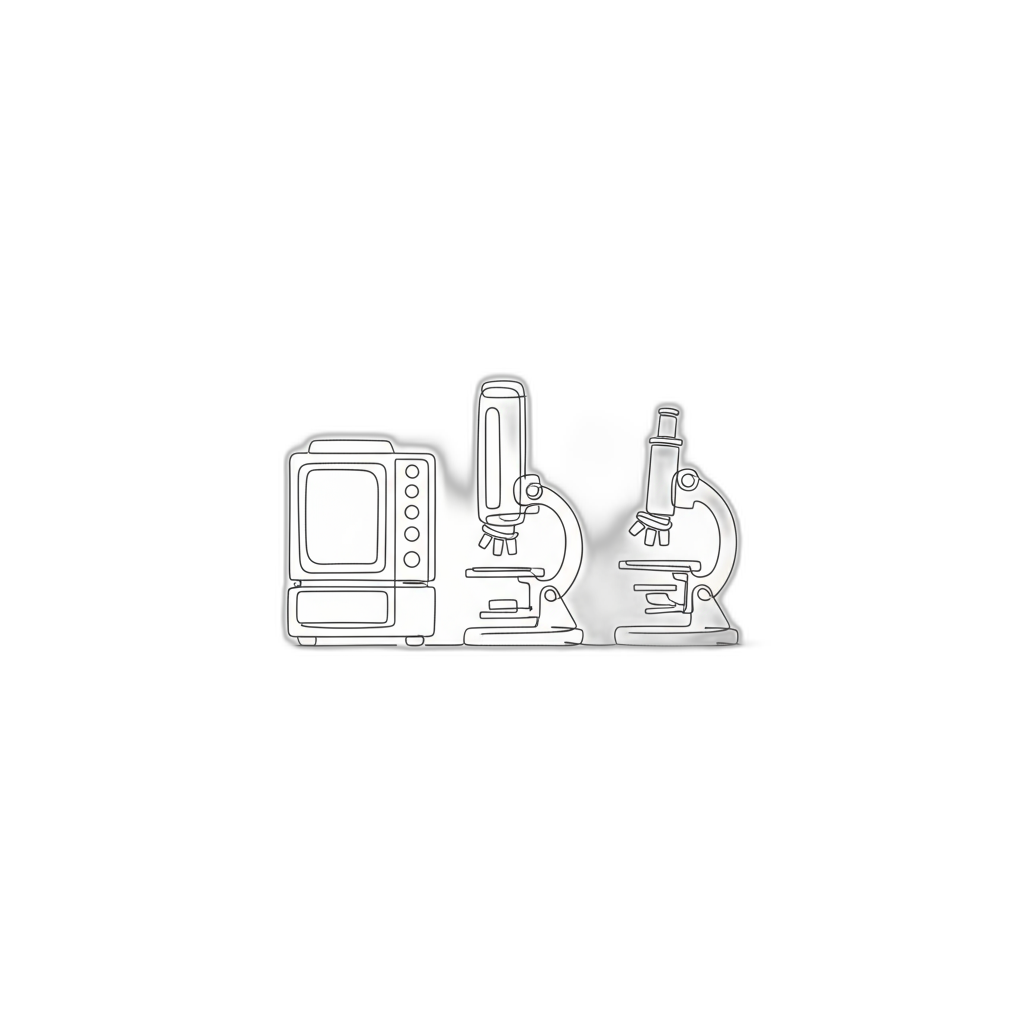

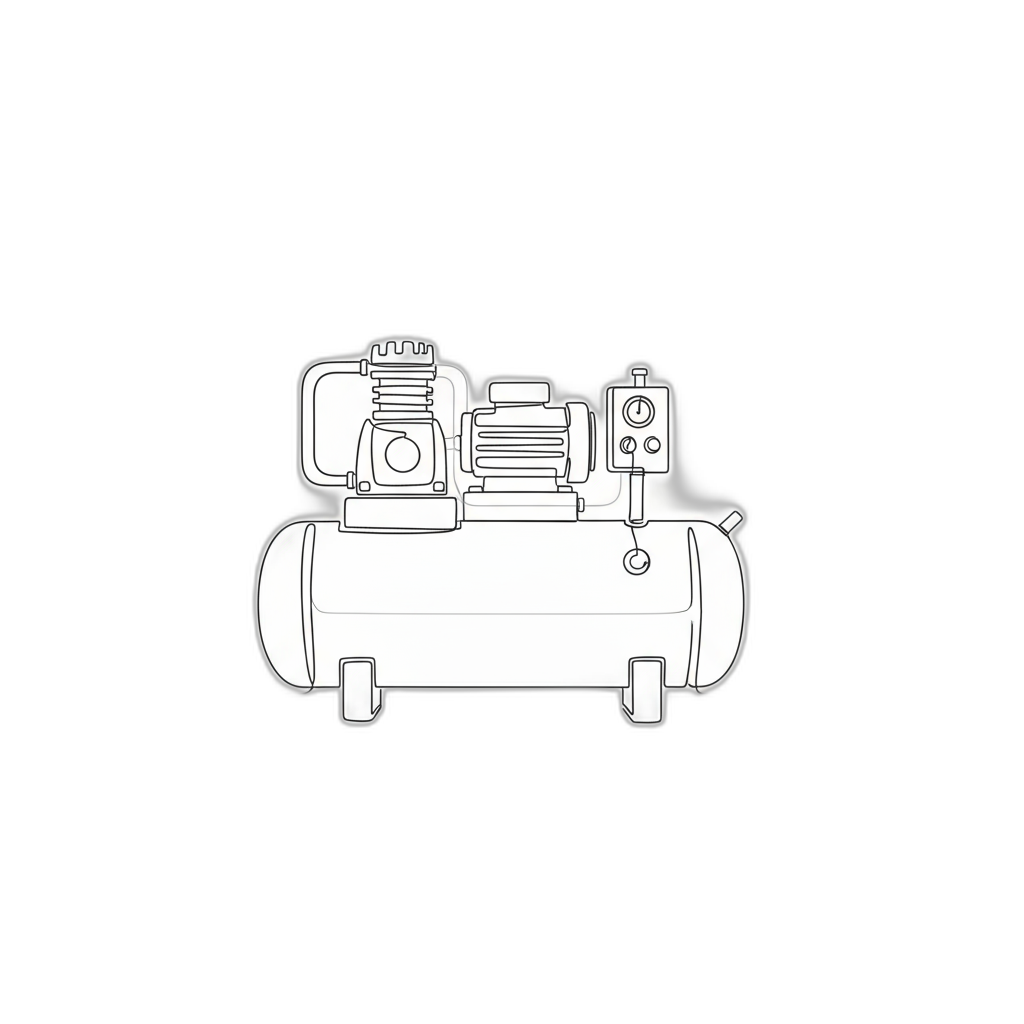
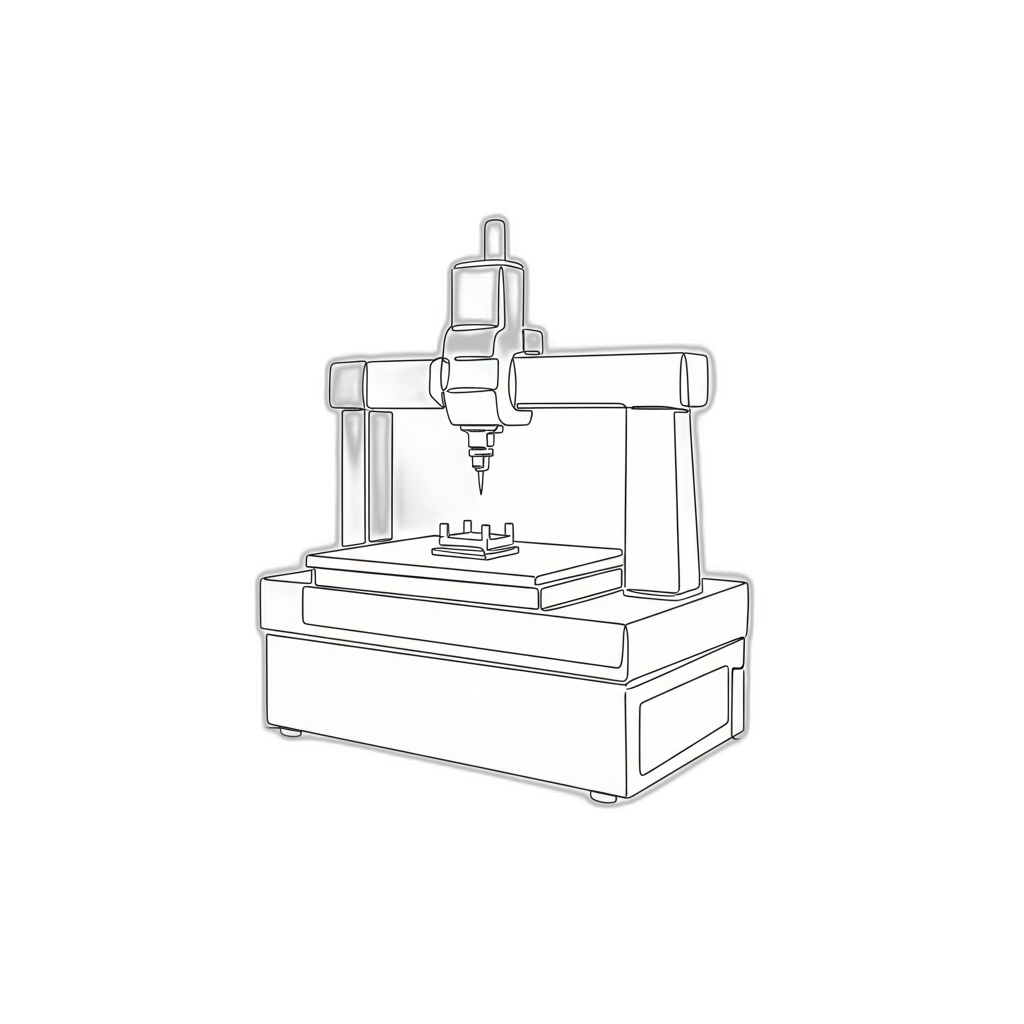
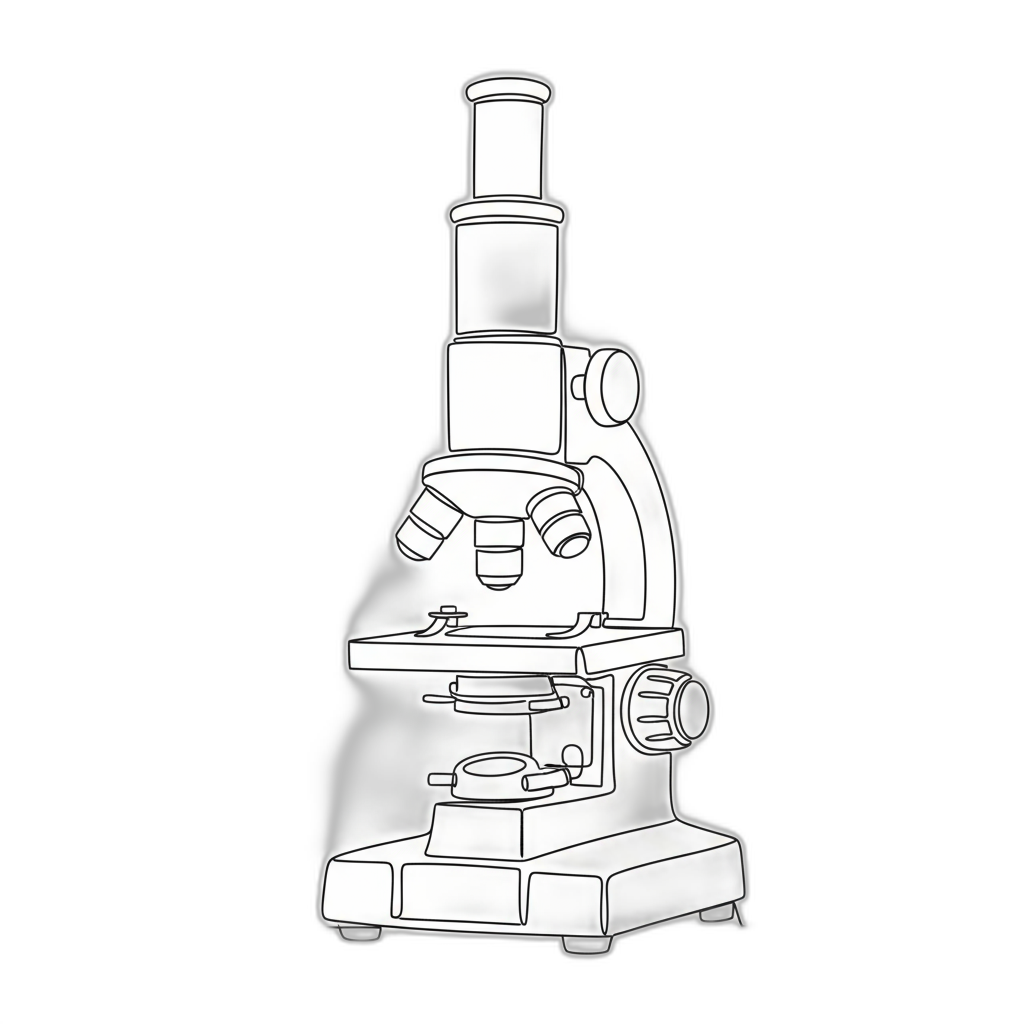
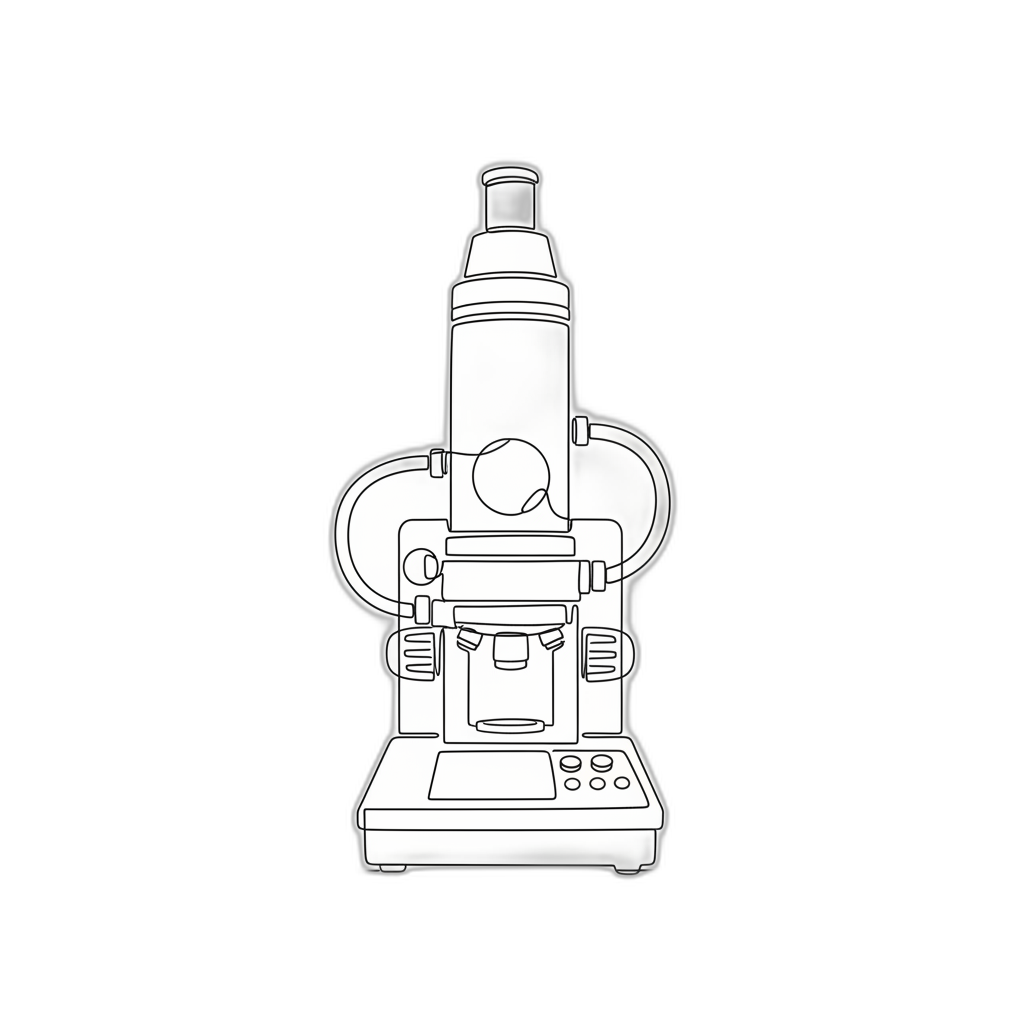
.svg)














